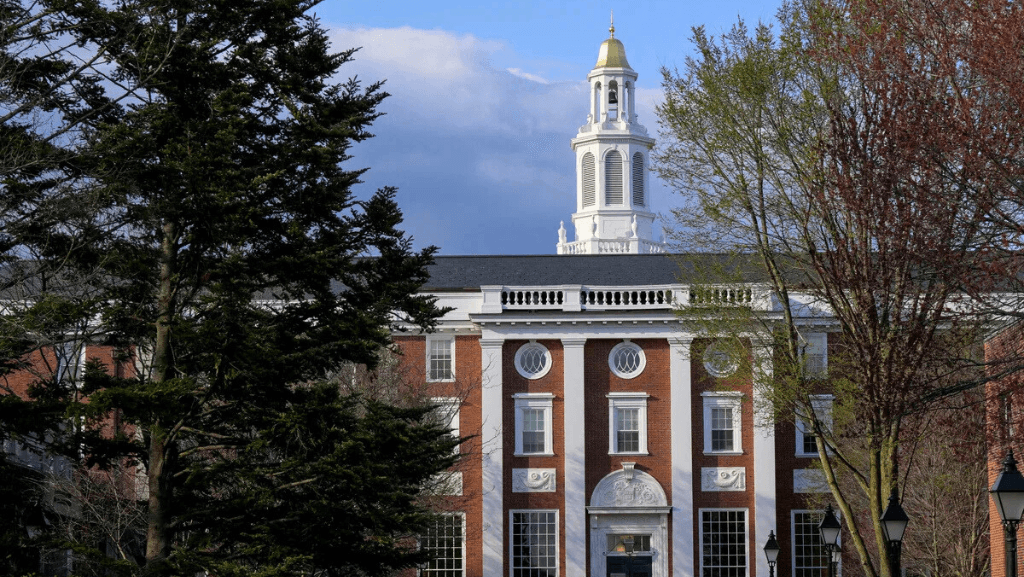
Four Law Firms Secure Temporary Relief for Harvard Against Trump's 'No Foreign Students' Policy
Legal victory for Harvard as a federal judge halts Trump's revocation of SEVP certification, allowing continued enrolment of international students.
On May 22, 2025, the Trump administration took the controversial step of revoking Harvard University's ability to host international students on F-1 and J-1 visas under the Student and Exchange Visitor Program (SEVP).
This action, led by Homeland Security Secretary Kristi Noem, was part of a broader push by the administration to tighten oversight of international student admissions and governance at U.S. universities.
Harvard, a globally recognised academic institution, was accused of failing to comply with federal demands regarding the oversight of international students, including governance, faculty hiring practices, and admissions protocols.
The decision raised alarm not only for Harvard’s international students but also for the broader academic community in the United States, as it questioned the level of federal interference in university management.
Harvard's Legal Challenge
In response to the revocation, Harvard University swiftly filed a lawsuit in the U.S. District Court for the District of Massachusetts. The university argued that the administration’s decision was unlawful, unconstitutional, and infringed upon its right to manage its student body without unnecessary federal intervention. Harvard sought an injunction to prevent the enforcement of the revocation and to preserve the rights of its current international students.
Four prominent law firms, including top-tier firms specialising in constitutional law and immigration issues, took on the case. Their collective legal expertise secured a temporary restraining order from a federal judge, effectively blocking the Trump administration's decision to revoke Harvard’s SEVP certification, at least for the time being.
The judge's ruling on May 23, 2025, paused the revocation and allowed Harvard to continue enrolling international students under F-1 and J-1visas as the case proceeded through the courts. The decision was hailed as a victory for the university and a critical legal moment for the rights of educational institutions to operate without undue political interference.
Impact on International Students
The revocation had the potential to displace thousands of international students enrolled at Harvard, many of whom would have been forced to transfer to other U.S. universities to maintain their legal status. Harvard currently hosts over 6,700 international students, accounting for nearly a quarter of its student population. The revocation also posed significant challenges to the university’s academic reputation and its ability to attract top-tier international talent in future years.
As of now, international students at Harvard can continue their studies without fear of immediate visa issues, thanks to the court's temporary order.
Particular Impact on Indian Students
Among the international student body at Harvard, Indian students represent a significant proportion. Approximately 800 Indian students are enrolled at the university under the F-1 and J-1 visa categories. For these students, the revocation created immense uncertainty regarding their academic futures and immigration status in the U.S.
Many Indian students rely on the opportunity to study in the U.S. to pursue careers in fields like engineering, computer science, and business, which are highly competitive. Given the temporary relief granted by the court, these students can breathe a sigh of relief, knowing they won’t face immediate displacement.
However, the ongoing uncertainty has made it essential for Indian students to closely follow the case’s progress, especially since a prolonged legal battle could lead to future complications in maintaining their visas.
Legal and Educational Repercussions
The decision to revoke Harvard’s SEVP certification forms part of a larger trend of federal government actions aimed at curbing the number of international students in the U.S. academic system. The Trump administration has previously pushed policies aimed at restricting visas and student admissions, especially from countries perceived as adversarial to U.S. interests.
Legal experts suggest that the ruling could have long-term consequences for U.S. universities’ autonomy over international student admissions. If Harvard succeeds in challenging the revocation, it could establish an important legal precedent for academic freedom and institutional rights against overreach by the federal government.
Key Takeaways
-
The Trump administration revoked Harvard University's certification to host international students under F-1 and J-1 visas, citing non-compliance with federal demands.
-
Harvard filed a lawsuit, and four law firms secured a temporary restraining order, preventing the revocation from taking effect.
-
The decision impacts over 6,700 international students at Harvard, including approximately 800 students from India.
-
The ongoing case will have significant implications for the rights of U.S. universities to manage their international student populations without federal interference.
-
The temporary relief granted by the court allows international students to continue their studies without the immediate threat of visa issues.
For any enquiries or information, contact info@thelawreporters.com or call us on +971 52 644 3004. Follow The Law Reporters on WhatsApp Channels.